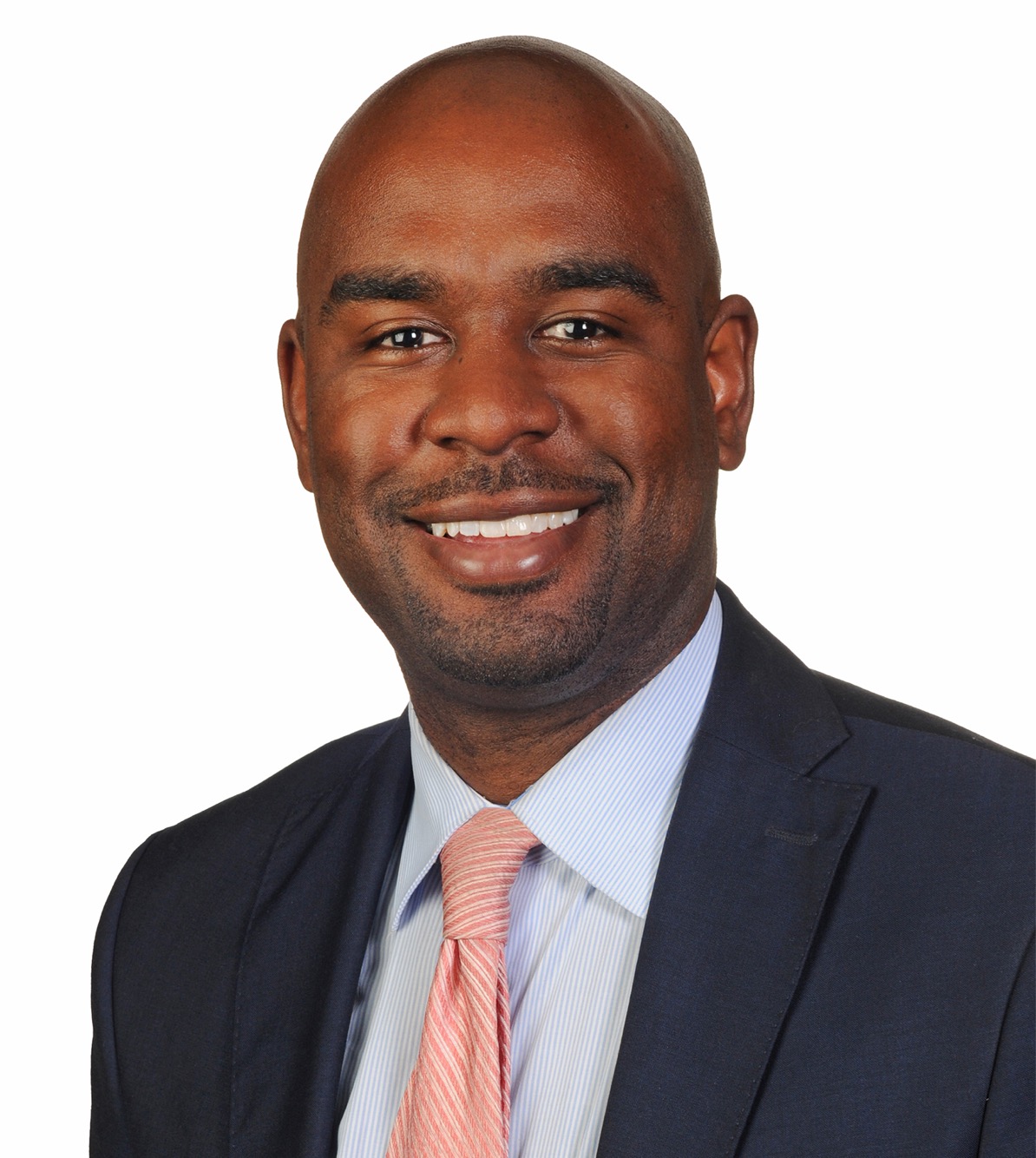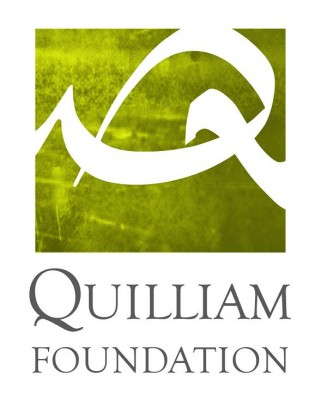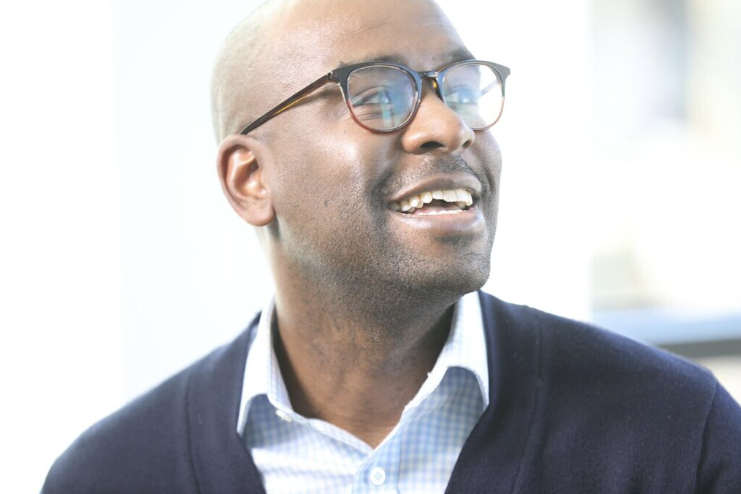Muhammad Fraser-Rahim Counters Extremism From Within

Muhammad Fraser-Rahim is the Executive Director of North America for Quilliam International. He is an expert on violent extremism issues and a scholar on Africa. Prior to his current role, he served as a Senior Program Officer at the U.S. Institute of Peace where he led their Horn of Africa Programs and served as an expert on Countering Violent Extremism (CVE) issues.
Mr. Fraser-Rahim’s areas of specialty are on transnational terrorist movements, Islamic intellectual history, and Africa. Additionally, Mr. Fraser-Rahim worked for the United States Government for more than a decade for the Department of Homeland Security, Director of National Intelligence, and the National Counterterrorism Center. While there, he provided strategic advice and executive branch analytical support on CVE issues to the White House and the National Security Council, where he was author or co-author of Presidential Daily Briefs and strategic assessments on extremist ideology and regionally on Africa and the Middle East. Mr. Fraser-Rahim has conducted research in more than 40 countries on the African continent, and has worked and studied throughout the Middle East. He completed advanced level Arabic language certificates at various higher education institutions in the U.S., West Africa, and the Middle East and he holds a Ph.D. from Howard University in African Studies with a focus on Islamic thought, Muslim communities in the West, and violent extremism.
A Note from Our Executive Director, George Zarubin: “In 2017, the AHA Foundation expanded its important mission. While we still focus on supporting and protecting the rights of girls and women, we have also joined the fight to counter extremism, to more closely align with our Founder’s work on challenging the dangerous ideology of Islamism. The AHA Foundation is collaborating with reform-minded Muslims, like Muhammad Fraser-Rahim and the other folks at Quilliam, who also believe that the ideology of Islamic extremism needs to be curtailed.”
AHA Foundation: What inspired you to pursue counter-extremism work as a career?
Muhammad Fraser-Rahim: During my undergraduate career, I studied abroad in West Africa (Senegal, Mali, Guinea, Sierra Leone, and the Gambia) via a study abroad and exchange program with my university. Prior to my travel overseas, I was an undecided major, and it was this experience – volunteering at a UN refugee camp in Sierra Leone with victims of a 10-year conflict and then subsequently traveling throughout the region – that I first become confronted with extreme violent conflict beyond the textbooks.
This exposure impacted me tremendously, and from that time, I was inspired to incorporate my interest in understanding the root causes of conflict and my passion and interest in history and international affairs. After that experience, I went on to finish my undergraduate degree in History and International Studies and during that time, I was recruited by the U.S. government to consider a career working on counterterrorism issues, fusing my expertise in religion, history, and violent conflict.
AHA Foundation: Tell us about the work of Quilliam on countering violent extremism in North America.
 Muhammad Fraser-Rahim: Quilliam officially opened up our U.S. office in April 2017 and I became the Executive Director. Prior to me joining Quilliam, the organization had interest in expanding beyond Europe, in light of the global nature of the threat, in all forms, of violent extremism that the international community has been faced with. I joined Quilliam after serving the U.S. government for over a decade, working as a senior government analyst on counterterrorism (CT) and national security issues, both domestically and abroad. During that time, I worked with various administrations supporting the White House and National Security Council advising on terrorism prevention and counter-radicalization issues. I bring this up to highlight that my experience as a former government CT Analyst, and then my subsequent time at the United States Institute of Peace as the Director of Horn of Africa programs and expert on violent extremism issues, certainly has impacted my thinking of how our work at Quilliam must continue to evolve, stay objective, and provide a balanced voice on very complex issues for various constituencies (e.g. grassroots, policy makers, practitioners, etc.)
Muhammad Fraser-Rahim: Quilliam officially opened up our U.S. office in April 2017 and I became the Executive Director. Prior to me joining Quilliam, the organization had interest in expanding beyond Europe, in light of the global nature of the threat, in all forms, of violent extremism that the international community has been faced with. I joined Quilliam after serving the U.S. government for over a decade, working as a senior government analyst on counterterrorism (CT) and national security issues, both domestically and abroad. During that time, I worked with various administrations supporting the White House and National Security Council advising on terrorism prevention and counter-radicalization issues. I bring this up to highlight that my experience as a former government CT Analyst, and then my subsequent time at the United States Institute of Peace as the Director of Horn of Africa programs and expert on violent extremism issues, certainly has impacted my thinking of how our work at Quilliam must continue to evolve, stay objective, and provide a balanced voice on very complex issues for various constituencies (e.g. grassroots, policy makers, practitioners, etc.)
As such, our focus and direction are threefold: (1) Thought Leadership/Media: We believe in active and constructive engagement in the media airwaves to provide our nuanced perspective on both CT and terrorism prevention issues. We recognize that we represent one voice out of many voices on this topic of preventing extremism, and we continue to stay relevant by constantly looking at our key assumptions, evaluating what works, and also learning from our approaches to continue to offer new and fresh approaches to provide insights in the public debate; (2) Policy Analysis: Like other think-and-do tanks based in Washington, DC and elsewhere throughout the United States, we provide evidence based and empirically sound research that offer original insights on a variety of topics in the counter extremism space. Through our written policy reports, we seek to continue the research analysis started in our London office, and specifically focus on U.S. specific concerns and challenges and its nexus to the global fight against extremism; and (3) Programs/Interventions: Our programs and interventions range and include the extensive work that we have done in working with reformers, to supporting various customers who seek to understand our approach to combating all forms of violent extremism in the world. Some of those efforts include creating alternative narratives to sway individuals away from the path of extremism to working on tailored individualized rehabilitation programs for people on their journey out of extremism.
“Let’s be honest, the effort to prevent individuals joining extremist groups isn’t new and we shouldn’t try to reinvent the wheel.”
AHA Foundation: What is it like to grow up Muslim, and now to try to work from within the community to change other Muslims’ perception about the ideological battle to counter extremism?
Muhammad Fraser-Rahim: When I first joined Quilliam, so many people on social media were like: “Who is this ‘Black Muslim’ convert to Islam who is now working for the organization?” Unbeknownst to many, I am not a convert to Islam and I come from a long line of generations of African Americans who converted to Islam beginning in the 1930s in America, and who were looking for spiritual solace in light of the challenges of segregation and racism in America. I have aunts, uncles, and cousins who are Muslim, along with my parents, as well as some family who are Christians. Islam has been deeply entrenched in the African American community since the first arrival of enslaved Africans in America.
Our story and resilience is one in which our experiences have been deeply affected by extremism in many forms, some structural and at other times much more subliminal. As such, this experience of coming from communities of African Americans, both Muslim and non-Muslim alike, has allowed me and the community I was raised in to critically examine both the internal and external challenges of what it means to be black, American, and Muslim.
To be honest, African American Muslim communities and immigrant Muslim communities, in many instances, have strained relationships with one another, often times having different priorities as a result of our experiences in America. The majority of African American Muslim communities are largely focused in urban centers, but are deeply integrated in the social, cultural, and political landscape of the communities they live in. For them, social justice issues transcend “religious” only concerns and are much more holistic in its desire to help all of society rather than just focusing on Muslim-only or Muslim-specific issues. In many African American Muslim mosques, it is more likely you will hear the topics of black on black crime, drug addiction, and finding affordable housing topics integrated in Friday sermons, than the topics of Palestine being the topic to rally on, which is certainly an important one in many largely immigrant Muslim communities.
“What we at Quilliam, and certainly in our offices in North America, are seeking to do is constantly stay ahead of the curve. We are working to better understand the impact of violent extremism and its nexus to technology, non-ideological driven alliances and new ways in which groups are merging.”
I was raised in a strong Muslim family and still consider myself a Muslim who was always told to be objective and to support causes that at times might be uncomfortable for some, but are deeply important and require both internal and external reflection. For example, topics that affect intra-Muslim communities like race, religious interpretation, anti-blackness, or just overall differences of opinion, were ones that were critically important and required honest dialogue. As a result of that, the idea that in some way the work that I am doing within the Muslim community, of calling out our internal concerns, is just as important, as I will be critical and objective to external communities who seek to impose anti-Muslim hatred as well. In my experiences, balance is the key. And, yes, I don’t come from a largely immigrant community, though many of my teachers came from various places across the world. I was also raised in indigenous Muslim communities who were comfortable in being American, black, and Muslim. These community dynamics has given rise to individuals like Muhammad Ali, Congressman Andre Carson, and countless others who have made it vitally important to be critical, when necessary, of America, but also see America the beautiful, too.

As such, my interest will be to continue to build those relationships. My community, which represents one of the largest, if not the largest Muslim community in America, has been an important untold voice that quietly has been working to focus on the collective values that bring all of us together. It is because of that experience which I still see as vitally important and one in which allows me to volunteer, live, and work in these urban communities, regardless of faith traditions to continue to help and protect extremism in all forms whether they be gang, drug, or Islamist groups who seek to cause havoc.
AHA Foundation: What has your research primarily focused on, and can you tell us a little bit about the results of your research?
Muhammad Fraser-Rahim: For the past nine months, our written work has been primarily in the form of op-eds that addressed a range of topics to include Quilliam’s perspective on the following: (1) U.S. domestic and international counter-terrorism (CT) policy; (2) Intra-Muslim dialogue and how to create it within America; 3) Addressing far-right extremism; and (3) Counter-messaging and counter-narratives in Africa.
Along with just some of these topics, we have been quick to respond to various attacks and provided expert analysis in the aftermath of these events, both domestically and abroad, to continue to provide our particular angle on these issues. Furthermore, going forward, we have numerous longer policy reports that will be coming out for the next several months that provide our insights on a range of topics on extremism including how we address the increasing influence of the far-right, Islamist groups in the aftermath of ISIS’s decline and a number of reports on the nexus between technology, CT, and terrorism prevention issues.
AHA Foundation: Can you tell us about your experience of where violent extremism stems from and the implications of some of the root causes?
Muhammad Fraser-Rahim: There is never a one size fits all to understanding why individuals radicalize and the motivations to join an extremist group. During my time at the U.S. National Counterterrorism Center (NCTC), we worked on a now declassified report called, “A Radicalization Primer,” which talks about the factors and indicators of the pathway to violent extremism. In 2012, when this report was released, the world was collectively addressing the rise of al-Qa’ida and responding adequately with the slow emergence of the so-called Islamic State developing too.
Our approach then has evolved, and those of us in this counter extremism space often use the analogy that if al-Qa’ida was Microsoft, and ISIS is like Apple, then what will be next in terms of being adaptive, flexible, new and speaking to the zeitgeist of this era in the extremism space? These are real questions all of us continue to wrestle with.
There is no question that structural issues, including governmental crackdown, extra judicial targeting of groups including killings, unemployment, poverty, etc. play a role, but there are other contributing factors including a sense of belonging, meaning, purpose, etc. that can be just as compelling for individuals to join movements, in this case, extremist movements. A number of social science researchers, including from Quilliam, have written extensively on this phenomenon. What we at Quilliam, and certainly in our offices in North America, are seeking to do is constantly stay ahead of the curve. We are working to better understand the impact of violent extremism and its nexus to technology, non-ideological driven alliances and new ways in which groups are merging.
“There is never a one size fits all to understanding why individuals radicalize and the motivations to join an extremist group.”
AHA Foundation: What have you seen to be helpful or unhelpful in countering violent extremism?
Muhammad Fraser-Rahim: I have found that this space increasingly has been polarizing based at where individuals sit and view the problems. Activists, civil society practitioners, religious organizations, academics, and government officials often times see this issue of violent extremism through different lenses. In America, some of the biggest voices against countering violent extremism have voiced their concerns based on them seeing it as a real and/or perceived attack on their race or religion. I often encourage the public at large to trace back when this term was first introduced, and I can tell you from being a former government analyst that it was created in the halls of a government building. During the early 2000s, the U.S. was responding to the aftermath of 9/11, and finding the right response that was measured and well-defined was something that has certainly been imperfect. As such, as is lawfully permitted in the U.S., groups should critique policy decisions, but I also encourage groups to recognize that terminology often times may mean one thing in government circles that take on different meaning outside of government circles.
When I was in government, I used to conflate that CT and CVE were one in the same, and once I left government and during my time working as a practitioner, I was able to see that these topics can also be mutually exclusive. It’s important to recognize that in many instances, governments will continue to engage in kinetic activity [this refers to military action that involves active warfare] as that is vital for national security, but soft power approaches – working in the community and finding effective prevention techniques – are helpful for all of us in the long run. I bring this all up to say that all of society, no matter where we are sitting, can make an effective contribution in this space, and in many instances, there might not be a clear agreement collectively on this topic, but recognizing that these problem sets are nuanced and are beyond just black and white resolutions.
An all of society response means that one doesn’t have to be black to challenge racism, one doesn’t have to be gay to challenge homophobia and one doesn’t have to Muslim to stand against anti-Muslim hatred. We are all humans and we share a common desire to see the best out of everyone and to find a way to mainstream against extremism through diverse means to reach populations and people who might be vulnerable. The human race must be united, and fight against these elements. We don’t all have to agree on every matter, but we must recognize our intrinsic value systems of wanting freedom, equality, tolerance, pluralism and justice for all.
AHA Foundation: What are most effective ways to prevent extremism from developing and taking hold?
Muhammad Fraser-Rahim: We work by encouraging and leveraging a whole of society approach to prevent extremism. In our estimation, mainstreaming against extremism and focusing on values, particularly in the American context, is vitally important. Our society as a whole is the most diverse in human history, and creating and cultivating ally-ship is important so as to push for solidarity in a unified front to create healthy and strong communities in which we all live in. Yes, interventions, including one-to-one rehabilitation programs are important, and other tailored efforts can help individuals in and out of extremism, but also arts, music, and poetry can be just as effective. Our work, for over 10 years, has provided various approaches to sway individuals away from extremism, and we will continue to use that experience and formula in the American context as well.
“The same good techniques that have swayed individuals away from gang recruiters or drug dealers, can and should be employed in the fight against ideologically driven extremism and there are time and tested results to show they work.”
AHA Foundation: During the past 10 years, extremism has increasingly found its way into the Western society. American citizens are being recruited to join extremist forces abroad. Are you optimistic about the work that is being done to counter extremism in the U.S. and abroad?
Muhammad Fraser-Rahim: I couldn’t be more excited to be part of this movement, now more than ever. I try to take a pragmatic approach in how I have engaged on matters in America. My experience in government, as a practitioner, and as a peacebuilder has given me the renewed excitement that there are good practices that we all have learned from. Certainly, some Americans have joined extremist movements, but continuing to work with local communities, providing early detection techniques and also providing outlets, including third spaces where young people and others can learn to be themselves and channel some real and/or perceived frustrations in positive ways can be very helpful. Let’s be honest, the effort to prevent individuals joining extremist groups isn’t new and we shouldn’t try to reinvent the wheel. The same good techniques that have swayed individuals away from gang recruiters or drug dealers, can and should be employed in the fight against ideologically driven extremism and there are time and tested results to show they work.
“Women, not just at the grassroots level, but also at the governmental and policy level, must be actively engaged for their insights, advisement, and actual crafting of strategies.”
AHA Foundation: What role do girls’ education and empowering women to be equal members of the society play in combating terrorism?
Muhammad Fraser-Rahim: Women, girls, and mothers especially are effective voices against extremism. Quilliam, along with partnering organizations like Women without Borders and their Sisters Against Violent Extremism (SAVE) initiative, is just one example of how women have played a major role, especially in deterring men and boys from extremism. Our programs and interventions have not only recognized the role that women play, but also how women are change agents for long term solutions. And, one of our future policy reports in the next several months that will be coming out focuses on how women, not just at the grassroots level, but also at the governmental and policy level, must be actively engaged for their insights, advisement, and actual crafting of strategies so as to ensure holistic prevention methods.
The opinions stated above are those of Muhammad Fraser-Rahim and do not necessarily represent the views of the AHA Foundation.
Want to learn more about Quilliam and their work? Read their Grooming Gangs report here or follow them on Facebook and Twitter.

